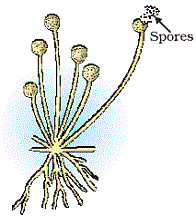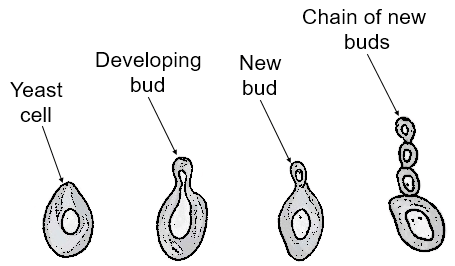UPSC Exam > UPSC Tests > Important Questions Test: Reproduction in Plants - UPSC MCQ
Important Questions Test: Reproduction in Plants - UPSC MCQ
Test Description
10 Questions MCQ Test - Important Questions Test: Reproduction in Plants
Important Questions Test: Reproduction in Plants for UPSC 2025 is part of UPSC preparation. The Important Questions Test: Reproduction in Plants questions and answers have been prepared
according to the UPSC exam syllabus.The Important Questions Test: Reproduction in Plants MCQs are made for UPSC 2025 Exam.
Find important definitions, questions, notes, meanings, examples, exercises, MCQs and online tests for Important Questions Test: Reproduction in Plants below.
Solutions of Important Questions Test: Reproduction in Plants questions in English are available as part of our course for UPSC & Important Questions Test: Reproduction in Plants solutions in
Hindi for UPSC course.
Download more important topics, notes, lectures and mock test series for UPSC Exam by signing up for free. Attempt Important Questions Test: Reproduction in Plants | 10 questions in 20 minutes | Mock test for UPSC preparation | Free important questions MCQ to study for UPSC Exam | Download free PDF with solutions
Important Questions Test: Reproduction in Plants - Question 1
What is the primary reproductive part of a plant?
Detailed Solution for Important Questions Test: Reproduction in Plants - Question 1
Important Questions Test: Reproduction in Plants - Question 2
Which plant reproduces through spore formation?
Detailed Solution for Important Questions Test: Reproduction in Plants - Question 2
Important Questions Test: Reproduction in Plants - Question 3
What do plants such as cacti produce when their parts get detached?
Detailed Solution for Important Questions Test: Reproduction in Plants - Question 3
Important Questions Test: Reproduction in Plants - Question 4
State whether the following statement is True or False
Plants can grow into healthy plants if all seeds of a plant were to fall at the same place and grow there.
Detailed Solution for Important Questions Test: Reproduction in Plants - Question 4
Important Questions Test: Reproduction in Plants - Question 5
Which method of asexual reproduction involves the formation of a new individual from a bulb-like projection?
Detailed Solution for Important Questions Test: Reproduction in Plants - Question 5
Important Questions Test: Reproduction in Plants - Question 6
Which part of a seed grows into the root system of a new plant?
Detailed Solution for Important Questions Test: Reproduction in Plants - Question 6
Important Questions Test: Reproduction in Plants - Question 7
Which type of reproduction involves the breaking up of an organism into fragments?
Detailed Solution for Important Questions Test: Reproduction in Plants - Question 7
Important Questions Test: Reproduction in Plants - Question 8
How do yeast cells reproduce to make more yeast cells?
Detailed Solution for Important Questions Test: Reproduction in Plants - Question 8
Important Questions Test: Reproduction in Plants - Question 9
Which part of the flower develops into a fruit?
Detailed Solution for Important Questions Test: Reproduction in Plants - Question 9
Important Questions Test: Reproduction in Plants - Question 10
Which of the following plants uses underground stems to store food and reproduce asexually?
Detailed Solution for Important Questions Test: Reproduction in Plants - Question 10
Information about Important Questions Test: Reproduction in Plants Page
In this test you can find the Exam questions for Important Questions Test: Reproduction in Plants solved & explained in the simplest way possible.
Besides giving Questions and answers for Important Questions Test: Reproduction in Plants, EduRev gives you an ample number of Online tests for practice
Download as PDF
















